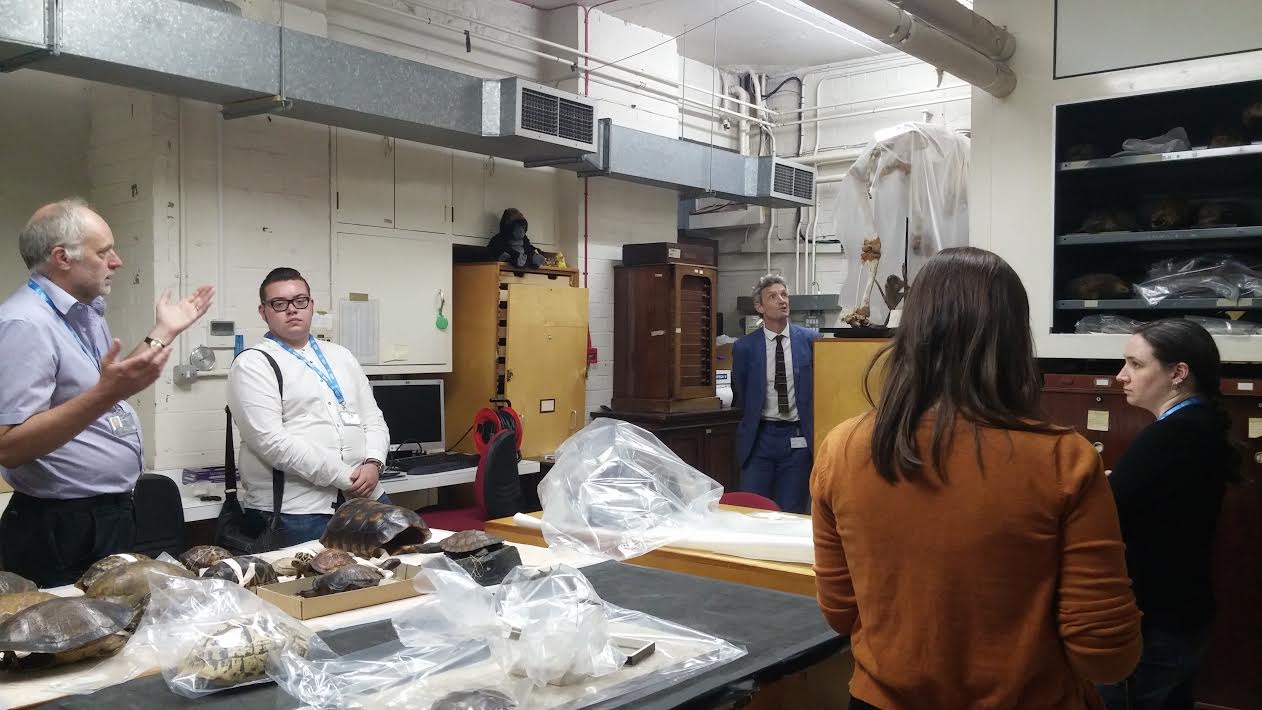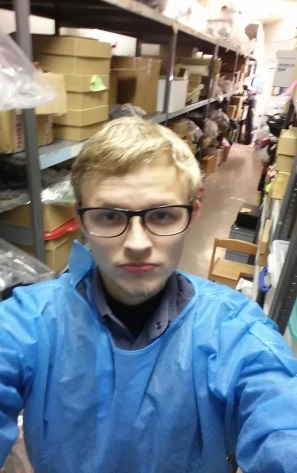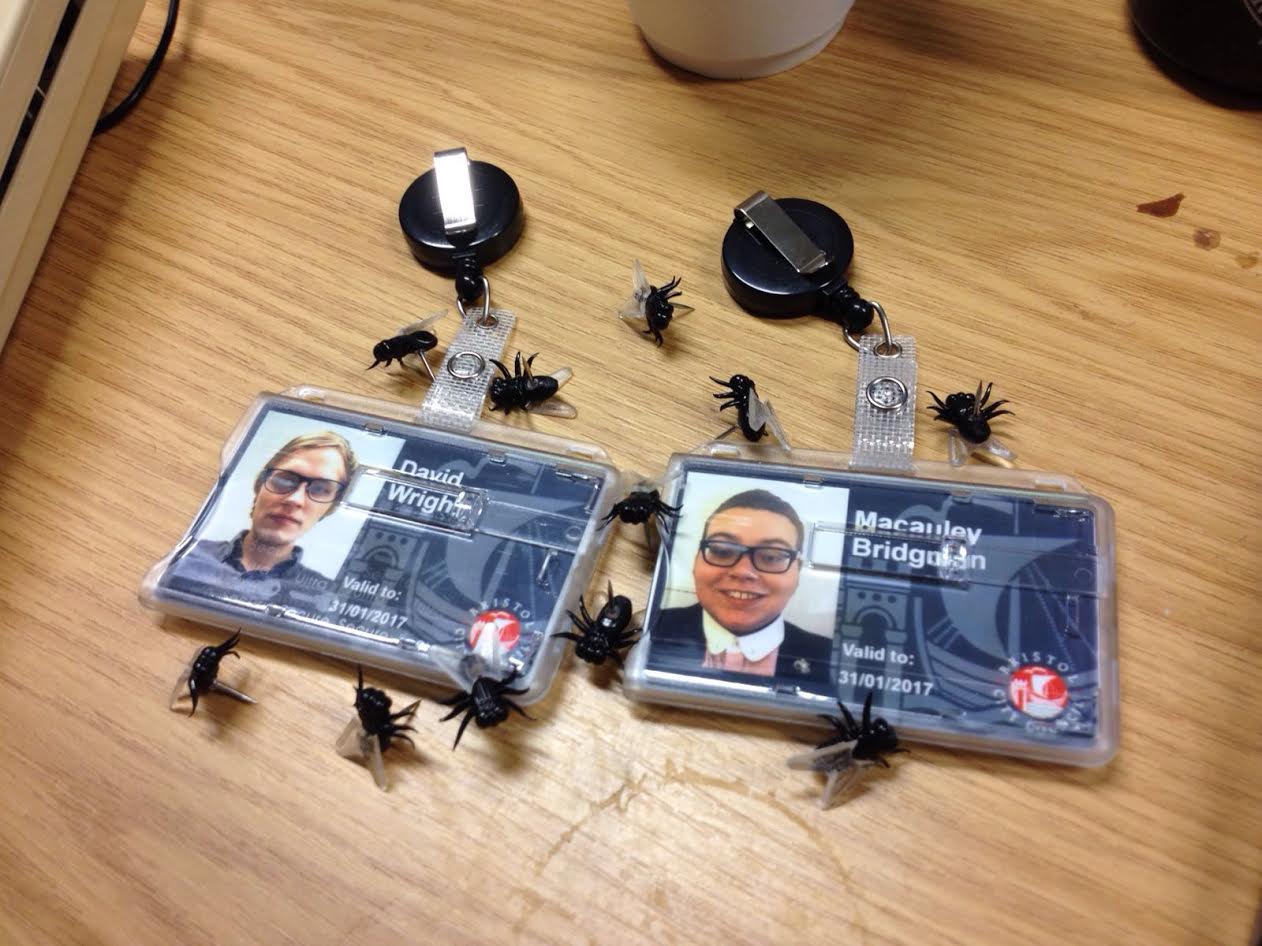By David Wright (Digital Curating Intern, Bristol Culture)
Both Macauley Bridgman and I are now into week six of our internship as Digital Curating Assistants here at Bristol Culture (Bristol Museums) . At this stage we have partaken in a wide array of projects which have provided us with invaluable experiences as History and Heritage students (a discipline that combines the study if history with its digital interpretation) at the University of the West of England. We have now been on several different tours of the museum both front of house and behind the scenes. Most notably our store tour with Head of Collections Ray Barnett, which provided us with knowledge of issues facing curators nationwide such as conservation techniques, museum pests and the different methods of both utilisation and presentation of objects within the entirety of the museum’s collection.

In addition we were also invited to a presentation by the International Training Programme in which Bristol Museums is a partner alongside the British Museum. Presentations given by Ntombovuyo Tywakadi, Collections Assistant at Ditsong Museum (South Africa), followed by Wanghuan Shi, Project Co-ordinator at Art Exhibitions China and Ana Sverko, Research Associate at the Institute of Art History (Croatia). All three visitors discussed their roles within their respective institutions and provided us with a unique insight into curating around the world. We both found these presentations both insightful and thought provoking as we entered Q&A centred on restrictions and limitations of historical presentation in different nations.
Alongside these experiences we have also assumed multiple projects for various departments around the museum as part of our cross disciplinary approach to digital curating.
Our first project involved working with Natural Sciences Collections Officer Bonnie Griffin to photograph, catalogue and conserve Natural History specimens in the store. This was a privileged assignment which we have perhaps found the most enjoyable. The first hand curating experience and intimate access with both highly experienced staff and noteworthy artefacts we both found inspiring in relation to our respective future careers.

Following on from this we undertook a project assigned by Lisa Graves, Curator for World Cultures, to digitise the outdated card index system for India. The digital outcome of this will hopefully see use in an exhibition next year to celebrate the seventieth anniversary of Indian independence in a UK-India Year of Culture. At times we found this work to be somewhat tedious and frustrating however upon completion we have come to recognise the immense significance of digitising museum records for both the preservation of information for future generations and the increased potential such records provide for future utilisation and accessibility.
We have now fully immersed ourselves into our main Bristol Parks project which aims to explore processes by which the museum’s collections can be recorded and presented through geo-location technology. For the purposes of this project we have limited our exploration to well-known local parks, namely Clifton and Durdham Downs with the aim of creating a comprehensive catalogue of records that have been geo-referenced to precise sites within the area. With the proliferation of online mapping tools this is an important time for the museum to analyse how it records object provenance, and having mappable collections makes them suitable for inclusion in a variety of new and exciting platforms – watch this space!. Inclusive of this we have established standardised procedures for object georeferencing which can then be replicated for the use of future ventures and areas. Our previous projects for other departments have provided the foundation for us to explore and critically analyse contemporary processes and experiment with new ways to create links between objects within the museum’s collections.

As the saying goes “time flies when you are having fun”, and this is certainly true for our experience up to date. We are now in our final two weeks here at the museum and our focus is now fervently on completing our Bristol Parks project.